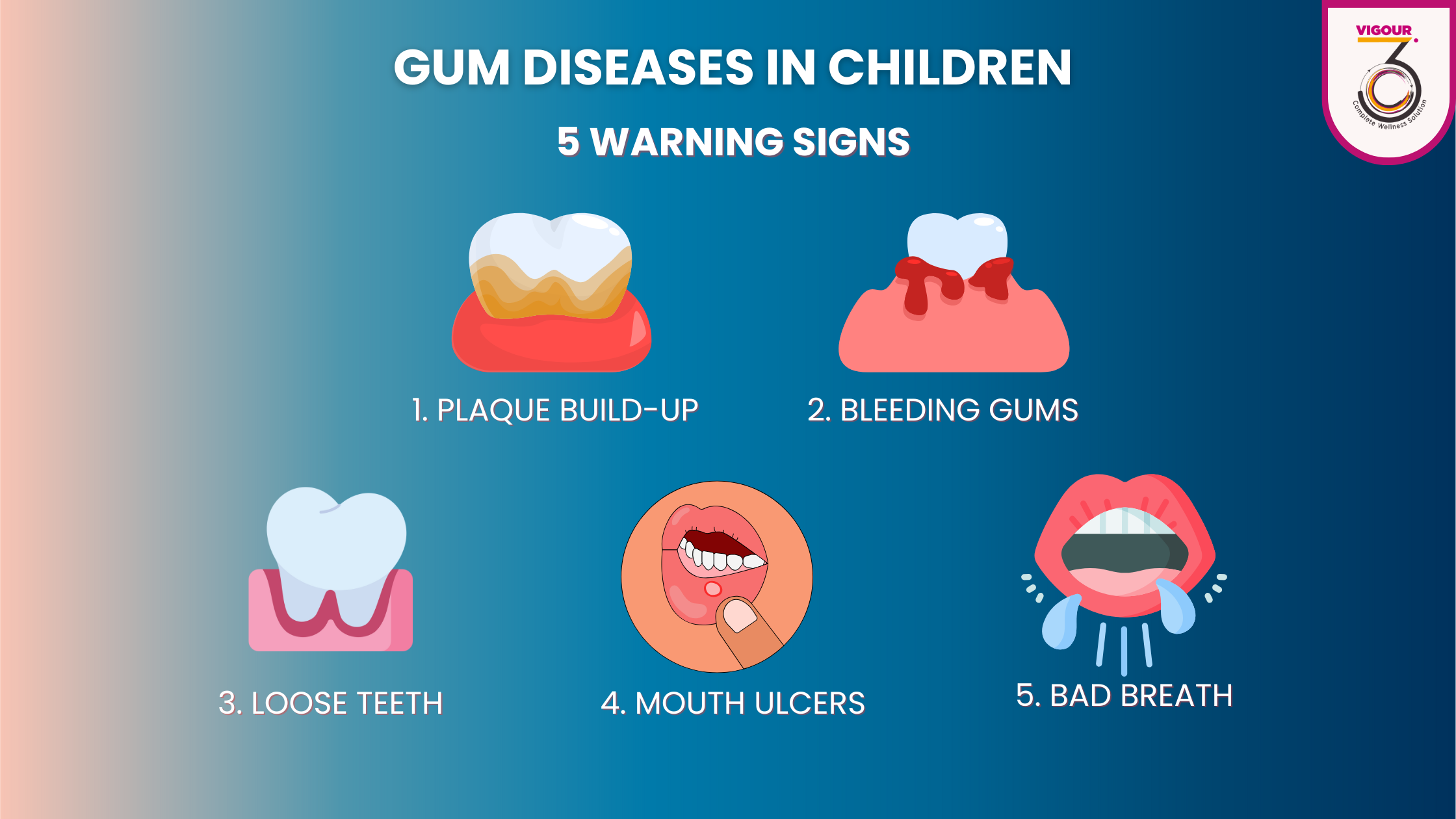
Every child may experience bleeding gums while growing up. This can be a result of poor oral hygiene. Swollen gums, bleeding, redness, mouth odour, and other symptoms are collectively referred to as gingivitis in scientific terms. Gingivitis, or gum inflammation, is one of the most common oral diseases in children.
Pediatric gum diseases are not limited to tooth-related issues but can also impact the overall health of children. Therefore, parents should not ignore gum problems in their children. This article will help you understand gum problems, their causes, and tips to prevent them.
Common medications that can cause dry mouth include:
5. Mouth breathing, crowding in the teeth can lead to gum problems in kids.
1. Children’s Dental Hygiene Routine:
Inculcate the habit of brushing twice a day from a young age. Parents should assist young children in brushing to effectively remove food buildup between teeth and gums. Use gentle, circular strokes for 2 minutes with appropriate pressure.
2. Healthy Eating Habits:
Consuming too much sticky and sweet food can lead to increased plaque buildup. Encourage healthy snacking at specific intervals to avoid unnecessary mid-meal snacking.
3. Hydration:
Water acts as a natural flosser, helping to wash away food particles from tooth surfaces. Drinking water throughout the day helps keep a child’s mouth clean. Warm salt water gargles are effective in removing oily, sticky residues from the teeth.
4. Flossing:
Flossing is not just for adults; it is also proven to be effective for children. Flossing once daily or on alternate days helps remove stuck food particles between teeth and relieves the gums.
5. Be a Role Model:
Parents who maintain a dental hygiene routine motivate their children to be consistent. Children mimic their parents' eating habits, so a family that follows a healthy diet is more likely to have good dental and gum health. Include more fiber in the diet as it acts as a natural cleanser for the oral cavity. Avoid eating junk food packets while watching television and control late-night cravings by maintaining a proper meal schedule. These small habits have a significant positive impact on oral hygiene.
6. Stress-Free Environment:
Provide your child with a calm and happy environment to grow and learn. Stress and anxiety can negatively affect teeth and gums.
7. Pediatric Dentist Advice:
Visiting the dentist every 6 months can save you and your children from costly dental procedures and painful experiences.
It is better for children to visit a Pediatric Dentist, as they understand child psychology better and can manage children using proven techniques, helping them deal with dental fear.
Comments (0)